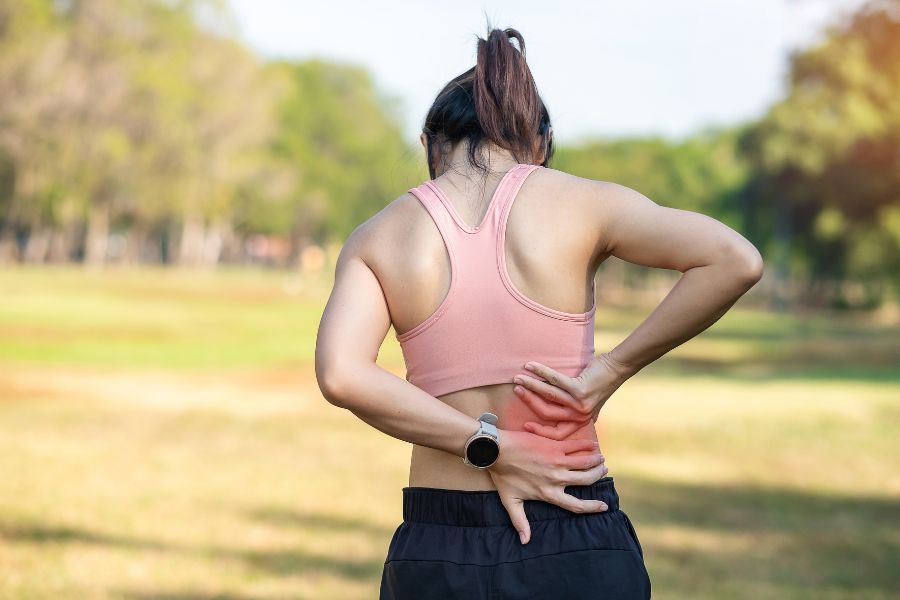Muscle recovery is crucial to maintaining a healthy and active lifestyle, especially for athletes and fitness enthusiasts. Undoubtedly, numerous methods and products are available to aid in muscle recovery. One emerging trend is the use of THC, or tetrahydrocannabinol, a compound found in the cannabis plant or CBD oil.
In this comprehensive guide, you’ll discover the potential benefits and risks of smoking cannabis using THC for muscle recovery. We’ll delineate its science and provide practical tips for those considering this approach.
But first off:
What is THC?
Before delving into the role of THC in muscle recovery, it’s essential to understand what THC is and how it works. THC is one of the many compounds found in the cannabis plants, and it is responsible for the plant’s psychoactive effects.
When consumed, THC interacts with the body’s endocannabinoid system, which plays a crucial role in regulating various physiological processes.
Understanding the Endocannabinoid System
The endocannabinoid system (ECS) consists of receptors, enzymes, and endocannabinoids, compounds produced by the body. It helps regulate various functions, including pain, mood, and appetite.
There are two primary types of receptors in the ECS. CB1 receptors, primarily found in the brain and central nervous system, and CB2 receptors, primarily found in the immune system and peripheral tissues.
Demystifying THC and the ECS
THC interacts primarily with CB1 receptors, which are concentrated in the brain. When THC binds to these receptors, it leads to altered perceptions, euphoria, and other psychoactive effects. Additionally, THC affects CB2 receptors to a lesser extent, potentially influencing immune system responses and inflammation.
What’s the Science Behind THC for Muscle Recovery
While THC is more commonly associated with its psychoactive effects, some researchers have explored its potential benefits for muscle recovery. While THC has mind-altering properties, this remarkable molecule has a whole range of undiscovered talents. Let’s check out some of them:
Vasodilation Power
THC is not just about getting high; it has surprising abilities. It’s a vasodilator, which expands blood vessels and boosts systolic blood pressure. Ever wonder why cannabis users get bloodshot eyes? THC enlarges blood vessels, making them more visible in the whites of the eyes.
Athletic Boost
This vascular effect can benefit athletes. Improved blood flow keeps muscles well-oxygenated. Enhanced circulation means better endurance and performance.
Breathing Easier
THC also acts as a bronchodilator, opening airways. Deep, efficient breathing is crucial during aerobic exercise. THC helps athletes take in more oxygen and distribute it effectively.
Pain Relief
It also has anti-inflammatory properties. THC reduces muscle pain sensations, aiding post-workout recovery. It’s a solution for those battling persistent muscle soreness.
Chronic Pain Management
Chronic pain sufferers can find relief through THC. It enables them to engage in physical activities and achieve athletic performance goals.
Sleep Support
THC, in significant doses, combats insomnia and induces drowsiness. Many cannabis terpenes also have calming effects. The right product and dose can be your ticket to a restful night’s sleep.
Boosting Motivation
At the correct dose and with the right terpenes, medical cannabis products can provide an uplifting feeling. Get the push you need to hit the gym or go for that run.
Other Ways THC Might Aid Recovery Process

Anti-Inflammatory Effects
Inflammation is a natural response to muscle damage during exercise. However, excessive or prolonged inflammation delays recovery. Some studies suggest that THC’s interaction with CB2 receptors may help reduce inflammation resistance and maximal exercise performance. This potentially speeds up the healing process.
Reduced Muscle Spasms
THC may help to reduce pain from muscle spasms, making it beneficial for individuals dealing with conditions like muscle cramps or spasms that hinder their recovery.
Appetite Stimulation
Proper nutrition is vital for muscle recovery and exercise performance. Luckily, THC stimulates appetite, which could be helpful for individuals who struggle to eat enough after an intense workout routine.
Potential Risks and Considerations
While there are potential benefits to vaping THC for muscle recovery, it’s essential to consider the risks and drawbacks of chronic cannabis use as well:
Psychoactive Effects
THC can alter perception and mood, which may not be desirable for everyone. Some individuals may find the psychoactive effects of THC uncomfortable or disruptive to their daily lives. It could be disturbing for athletes because the mind and muscles are connected.
Legal Status
The legality of cannabis consumption and THC varies widely from one place to another. It is crucial to be aware of the local laws and regulations regarding cannabis use and to comply with them.
Tolerance and Dependency
Long-term use of THC leads to tolerance, meaning that over time, you’ll need higher doses to achieve the same effects. Additionally, some individuals may develop a psychological dependence on THC, which hurts overall well-being.
Impairment
THC can impair cognitive and motor skills, potentially making activities such as driving or operating machinery unsafe. It is crucial to be cautious when using THC and avoid engaging in activities that require full attention and coordination.
Lack of Scientific Consensus
While there is some research on THC’s potential benefits for muscle recovery, we need more cannabis research to discover its effects. The existing research is limited in scope or based on animal studies.
Practical Tips for Using THC for Muscle Recovery
If you are considering using THC for muscle recovery, here are some practical tips to keep in mind:
Consult a Healthcare Professional
Before using THC for any health or medicinal-related purpose, it is advisable to consult a healthcare professional. This is especially true if you have underlying medical conditions or are taking medications.
Start Low and Go Slow
If you decide to try THC, start with a low dose and gradually increase it as needed. This approach can help you gauge your tolerance and minimize the risk of adverse effects.
Consider Different Methods of Consumption
THC can be consumed in various forms, including edibles, tinctures, and inhalation. Each method has its onset and duration of effects, so choose the one that aligns with your recovery goals.
Monitor Your Response
Consider how your body responds to THC. Keep track of its effects on your pain levels, inflammation, sleep quality, and overall well-being.
Be Mindful of the Legal Context
Make sure you know the legal status of THC in your area and abide by local laws and regulations.
Use THC in Conjunction with Other Recovery Methods
THC should not be seen as a standalone solution for muscle recovery. It can complement other exercise recovery strategies such as rest, proper nutrition, hydration, and physical therapy.
Conclusion
THC for muscle recovery is a topic that is gaining attention, but it comes with potential benefits and risks. While some individuals may find relief from muscle soreness and inflammation through the use of THC, it is essential to approach it with caution. You should also consider the legal and health-related implications.
Consulting a healthcare professional and practicing responsible use of chronic cannabis are critical steps for those interested in exploring THC as a part of their muscle recovery regimen. Additionally, more research is needed to fully understand the long-term effects and optimal use of THC for muscle recovery, making it an area of ongoing scientific exploration.

